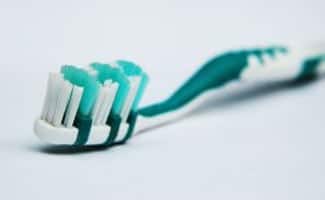Best Water Test Kit: Protect Yourself From Contaminants
 Contaminants can sneak into your home’s water supply without you ever knowing it — take Flint, Michigan as an extreme example. Fortunately, there are many at-home tests you can perform to find out the quality of your water. We’ve narrowed down your options to bring you the best water test kits for a variety of needs.
Contaminants can sneak into your home’s water supply without you ever knowing it — take Flint, Michigan as an extreme example. Fortunately, there are many at-home tests you can perform to find out the quality of your water. We’ve narrowed down your options to bring you the best water test kits for a variety of needs.
Article Overview
- Why Test Your Drinking Water?
- Best Water Test Kits
- How To Disinfect A Well (Video)
- Consider Getting Filters
Why Test Your Drinking Water?
Contaminants can make their way into our water in several ways — lead and copper through our pipes, nitrates and nitrites through fertilizer run-off, pesticides, animal farming and more. That’s why the Safe Drinking Water Act authorizes the Environmental Protection Agency (EPA) to set national drinking water standards to protect us from contaminants.
Did You Know? The EPA recommends testing your well water at least once a year.
While the EPA works with states, localities and other organizations to follow these standards for municipal water supplies, they’re not always perfect and contaminants can still get through. What’s more, the Safe Drinking Water Act does not apply to homes with private wells. For these reasons, it’s a safe practice for you and your family to know just what you’re getting in your home’s water supply.
Best Water Test Kits
You can perform all of the test kits we review here at home for quick results, except the best test kit for lab analysis. We chose our top picks based on several factors, including accuracy, ease of use, pricing and more.
Drinking Water | Well Water | In-Depth Lab Analysis | Water Hardness | Total Dissolved Solids (TDS)| Pool & Spa
Drinking Water: Test Assured Review
This at-home water testing kit includes 10 different tests you can use for both municipality and well water. It tests for lead, bacteria, pesticides, iron, copper, alkalinity, pH, hardness, chlorine, nitrates and nitrites.
The test types vary — some require you to put a test strip or a special tablet in a vial of water, and others are quick dip-in test strips where you match your results to their easy-to-decipher color-coded charts. But it only takes about 15 minutes for the entire testing process and to see your results (except the bacteria test, which takes 48 hours).
Pros |
Cons |
|
|
Price
Well Water: Watersafe Review
Watersafe markets this product as a well water test kit, but it’s actually quite similar to the Test Assured kit above so you can use it for tap water as well. The reason we chose it as the best well water test comes down to the bacteria test (a crucial test for well water). The bacteria test instructions in this kit are more comprehensive than those with the Test Assured kit, meaning you’re more likely to avoid a false-positive result.
Tip: Water bacteria tests are notorious for false-positive results if you don’t follow the instructions carefully.
Just like Test Assured, this Watersafe kit tests for lead, bacteria, pesticides, iron, copper, alkalinity, pH, hardness, chlorine, nitrates and nitrites. Its results are accurate and helps you identify common harmful bacteria found in well water as well as toxins that may be in your well water from the use of fertilizers or pesticides.
Pros |
Cons |
|
|
Price
Lab Analysis: ‘Bang For The Buck’ Review
If you want a thorough, lab-conducted analysis of your drinking water, the ‘Bang-for-the-Buck’ Essential Indicators Water Test is a reliable option with a reputable company. Using EPA methodology, this professional-grade kit tests for a whopping 170+ contaminants, including volatile organic compounds, essential elements, heavy metals and inorganic chemicals. It also includes a self-test for 8 pathogenic bacteria including E. coli and total coliform. All you have to do is mail in a few vials of your water, and you’ll receive results via email within 6 business days.
Pros |
Cons |
|
|
Price
- Check Amazon for availability for Drinking Water Test
Water Hardness: WaterWorks Review
If all you need is to test the hardness of your water, you can save money by purchasing these WaterWorks Total Hardness Test Strips by Industrial Test Systems, Inc. — they’re a fraction of the cost of Test Assured and Watersafe‘s kits (which also test for hardness).
Why does water hardness matter? Hard water isn’t a health concern, but it can lead to mineral scale buildup in water pipes, water heating systems, boilers and other equipment. It’s also notorious for not cleaning laundry or dishes as well as soft water, requiring more detergent, soap and shampoo to produce suds.
Hard water contains relatively high levels of calcium and magnesium, as well as other natural minerals and metals that this test can detect. These easy-to-use test strips give you a color-coded total hardness score in a matter of minutes. The company uses calibrated equipment to manufacture these test strips, and they’re tested for quality control to ensure accurate results.
Pros |
Cons |
|
|
Price
TDS: HoneForest Review
This affordable and easy-to-use digital water quality tester is a 3-in-1 pen that measures temperature, electrical conductivity and total dissolved solids (TDS), which is any salt, metal or mineral in the water. You can use it for drinking water, water filtration and purification, aquaculture, hydroponics (determines your nutrient count), pools & spas and more. It also features automatic temperature compensation that ensures an accurate reading at various temperatures. Note: TDS meters like this one don’t test for contaminants.
Pros |
Cons |
|
|
Price
Pool & Spa Water: Poolmaster Review
The Poolmaster 22260 Water Chemistry Test Kit is more than just a pH water tester. For an affordable price, this solution-based kit measures your pool or spa’s levels of chlorine, bromine, pH, acid demand and total alkalinity so you can make sure the water is safe for your family. Many pool owners say that the solution-testing method is more accurate than using simple test strips. And it’s easy to use and read the color-coded results.
Pros |
Cons |
|
|
Price
- $20.49 with case
How Do I Disinfect My Well?
Check out this brief video that shows you how to disinfect your well easily using a method called partial chlorination. You should consider disinfecting your private well if:
- Water lab tests indicate the presence of coliform bacteria.
- Surface or flood water gets into your well.
- You’ve just replaced or repaired your well or well pump.
- You have a new well that’s just been hooked up to your plumbing system.
Ensuring The Purity Of Your Water
In addition to testing your home’s water to ensure the quality, you may want to consider getting a whole house water filter or individual water filters for your faucets. Adding filters to your home can give you more peace of mind that you’re doing all you can to have the most purified water for your family.
Why do you want to test your home’s drinking water?









